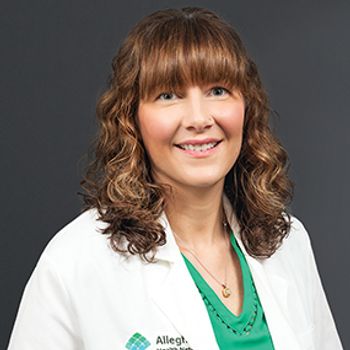
Genetic counseling for ovarian cancer risk
New research illustrates how a modified genetic counseling model can be completed in half the time of the traditional model but still be just as effective in reducing cancer-specific distress.
Modified genetic counseling prior to panel-based genetic testing for ovarian cancer susceptibility took less than half as long as the traditional model, according to results of a randomized, non-inferiority
The modified model was also comparable to the traditional model in decreasing cancer-specific distress, depression, anxiety, decisional conflict and perceived risk of ovarian/breast cancer. Both models resulted in similar ovarian cancer knowledge and satisfaction.
“Despite numerous published guidelines indicating that all women with high-grade serous ovarian cancer (
A review of data from the Princess Margaret Cancer Centre found that only 23% of women with HGSOC were seen for genetic counseling and testing between 2002 and 2009.
“For women with a hereditary form of HGSOC, there is a 50% chance their first-degree relatives (parents, siblings, children) may also have a hereditary risk” McCuaig told Contemporary OB/GYN. “Unfortunately, most HGSOC are diagnosed at a late stage and many women die of their disease. In addition, in the absence of an identified gene mutation, their at-risk relatives are often not eligible for provincially funded genetic testing.”
A total of 382 English-speaking women from Ontario who were at least 18 years old and had a first-degree relative who died of HGSOC participated in the study.
The women assigned to traditional counseling (n = 126) had a one-on-one meeting with a genetic counselor either face-to-face or via video conferencing, whereas those assigned to modified counseling (n = 256) watched a voice-recorded PowerPoint presentation at home, followed by a scheduled phone call with a genetic counselor.
The phone call lasted on average 19 minutes, compared to 46 minutes for the face-to-face or video conferencing session.For both groups, post-test genetic counseling (all by phone) averaged 16 minutes.
“Although both groups had a decrease in their perceived risk of ovarian cancer, women who scheduled traditional genetic counseling had a greater reduction in their perceived risk” said McCuaig, a PhD candidate in the
On the other hand, there were no significant differences in mean genetic satisfaction score, uptake of genetic testing, or gene selection at the time of genetic consent.
“Anecdotally, most participants randomized to the modified model did not have significant questions or concerns about genetic testing; the majority of pre-test counseling time was spent discussing the
The POCP allows participants to opt in to the types of results they would like to receive from a 52 gene hereditary cancer panel. “Category C genes”–defined by the study as genes which are possibly associated with ovarian cancer risk but where screening recommendations are not available – gave participants the most pause. Nonetheless, the majority of participants (88%) elected to receive results for all 52 genes tested.
“Most participants in the study expressed a feeling of ‘knowledge is power’ rather than feelings of anxiety about knowing,” McCuaig said. “However, all of the women self-enrolled in the study specifically to learn about their hereditary risk, which may bias the study results.”
Based on the study findings, all POCP participants now receive the
“Hopefully the results of this and upcoming studies from the POCP will provide data needed to advocate for the expansion of currently published genetic testing guidelines,” McCuaig said. “This will serve to increase the availability of genetic testing to individuals who may be at increased risk, where affected relatives cannot or will not proceed with genetic testing themselves.”
Disclosures:
Jeanna McCuaig reports no relevant financial disclosures.
Newsletter
Get the latest clinical updates, case studies, and expert commentary in obstetric and gynecologic care. Sign up now to stay informed.









